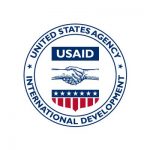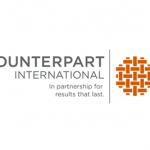Policy Launch” Civic Space in Afghanistan” Report




Introduction:
Afghanistan Institute for Civil Society (AICS) convened its Policy Launch civic space in Afghanistan on 11 February 2019 in Kabul. The main purpose of the policy Launch was to discuss the policy brief civic space in Afghanistan, including the overall situation of freedom of expression, freedom of association, freedom of assembly and their associated challenges and opportunities. It provides relevant recommendations to CSOs, the Afghan government, and donors. AICS, an Afghan CSO focused on promoting an enabling environment for Afghan civil society, prepared the brief based on field research conducted in Kabul and key provinces as well as desk review specifically the State of Enabling Environment for CSOs in Afghanistan (SEECA) report published by AICS in 2017 and 2018.the At the inauguration, the Policy Engagement Director of AICS welcomed the participants, explained the context of policy lunch events and introduced the agenda. Policy Engagement Director of AICS delivered two presentations on “The State of Enabling Environment for CSOs in Afghanistan 2018” and “civic space in Afghanistan”. The main purpose of the presentation was to identify the impact of Freedom of Association, Freedom of Peaceful Assembly, Freedom of Expression on development of CSOs in Afghanistan. Followings are main discussion points of this policy launch event:
Participants Discussion: On 11 February 2019, AICS launched its new policy paper on “civic space in Afghanistan”. The event was attended by 30 participants (10 female and 20 male) Representatives of civil society organizations, academia and media participated in this gathering. As per the plan, this event was convened in Kabul Star Hotel in Kabul city. At the beginning of this event, AICS provided brief presentation about the “State of Enabling Environment for CSOs in Afghanistan” by presenting findings and recommendations of SEECA 2018 research to the participants. An introductory event organized in Kabul to engage civil society organizations on SEECA’s prioritized areas; in fact, this was a follow up meeting to share the completed report and initial finding of SEECA with CSOs and other governmental and none- governmental sectorial departments within ask their supports for better highlighting and improving of SEECA recommendations. with aims to engage civil society organizations, media agencies, governmental related departments and other private sectorial departments to be familiarized with content and findings of SEECA drafted report along with its highlighted recommendations; from different sectorial department with divers’ competencies and ideas attended to be benefited; Brief deceleration on SEECA background and its main concept
• Sharing the findings of SEECA initial meeting inaugurated within AICS and UNAMA- Kabul • Familiarizing participants with SEECA follow up committee members which already established
• Sharing the prioritized recommendation on SEECA gathering among the participants within previous event held by AICS. Additionally, AICS presented findings of the its latest policy paper on civic space in Afghanistan (Freedom of Association, Freedom of Peaceful Assembly, Freedom of Expression) which was followed by a set of recommendations for CSOs and government. Subsequently, participants initiated open discussion about the paper’s findings and suggested that CSOs should work together to implement these recommendations in coordination with relevant government organizations. The policy paper will be used a source of information for CSOs as well as its recommendations will guide future decisions and discussions.
Recommendations: During open discussion with CSO member following recommendation and suggestion were raised:
➢ CSOs representatives requested MoEc to engage CSOs while developing their first national database for NGOs. MoEc has recently developed the database while most of NGO participants were not aware of this development. CSOs are interested to share their inputs with MoEc while MoEc is piloting it. Civil Society Joint Working Group (CSJWG) was requested to follow this issue with MoEc.
➢ CSOs share their concerns about increased role of law enforcement authorities (police) in newly approved law on Gatherings, Strikes



